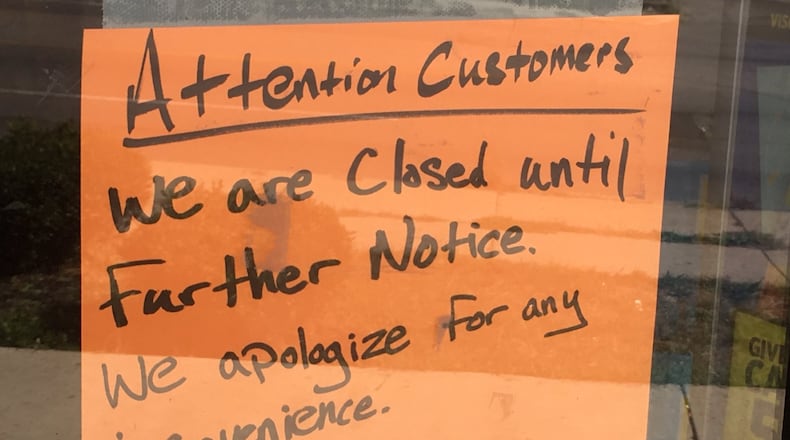The shooting happened about 6:20 p.m. at the store at 2228 North Gettysburg Ave.
“I just had somebody try to attempt and rob me over here at Dollar General on Gettysburg,” the 911 caller said. “Came in with a firearm, threatened to take money out the drawer, pointed a gun at me and my staff members. He pointed a gun at me, I had a firearm on me, I pulled my firearm and I shot him in self-defense.”
MORE: Dollar General shooting: Man shot after attempted armed robbery identified
Roosevelt Rappley, 23, of Dayton, died around 6:27 p.m. Wednesday, according to Montgomery County Coroner Kent Harshbarger.
Rappley does have prior history with police, according to Dayton Police Lt. Jason Hall, involving pending weapons charges and possible involvement in other commercial robberies in the area, including the recent robbery of a Dollar General on Main Street.
Hall on Thursday afternoon said that the investigation so far had produced witnesses who saw the suspect enter the store, brandish a handgun and demand money from the cash register.
“An armed employee was then engaged with the individual attempting to rob the store,” Hall said. “The shooting occurred inside the structure, and the individual fled outside.”
Hall explained that there is a lot of evidence that police are looking at from the scene, including video from the store and shell casings that ultimately will reveal much about the case. Police and store officials declined to release the video.
MORE: Dollar General shooting: ‘I shot him in self-defense,’ clerk says
Hall said police will present everything to prosecutors for review.
Dollar General officials said they have several measures to protect the safety of employees and customers, however, they stopped short of saying if employees are allowed to carry firearms, according to a statement obtained by this news outlet.
“At Dollar General the safety of our customers and employees is a priority,” a public relations spokesperson said in an email. “In line with that commitment, we employ a number of safety and security procedures to prevent, deter, and if necessary, respond to criminal activity in our stores.”
“To protect the integrity of these measures, we do not comment on them specifically,” the spokesperson said.
Police don’t often come across a robbery in which a store employees uses deadly force to thwart a robbery.
“As far as the individual (employee), he was legally possessing a weapon and he was on private property at his place of employment,” Hall said, adding a conceal carry permit isn’t required on private property.
MORE: Dayton police looking for Dollar General armed robber who made off with cash
“It is up to the company to decide whether employees can carry a weapon in their work environment,” Marc Clauson, professor of history and law at Cedarville University, said. “Laws of self defense are the same as normal, though the employee could be fired even if he is legally in the right if it is determined that he violated company policy.”
Liability is a much more difficult aspect to determine, according to Clauson and Doug Chisholm, director of Campus Safety at Cedarville. If an employee is negligent, then the business can be sued. If the employee is allowed by state law to carry, but not by his company, attorneys might be able to show the company was negligent or that the company didn’t sufficiently take steps to ensure the employee didn’t have a gun.
Chisholm pointed out that a section in the Ohio Revised Code makes clear that unless the private employer acted with malicious purpose, the private employer is immune from liability in a civil action for any injury related to the private employer’s decision to permit a licensee to bring, or prohibit a licensee from bringing, a handgun onto the premises.
“If a person pulls a gun on you and puts you in immediate fear of deadly physical force (DPF) being used against you (jeopardy), and there is no possible way of retreating, then you can use deadly physical force in self defense,” he said. “A good rule to follow is - does the perpetrator have intent, opportunity, ability, and are you in jeopardy of having DPF used against you?”
MORE: Gunman takes over $280 cash during Dayton Dollar General robbery
About the Author
